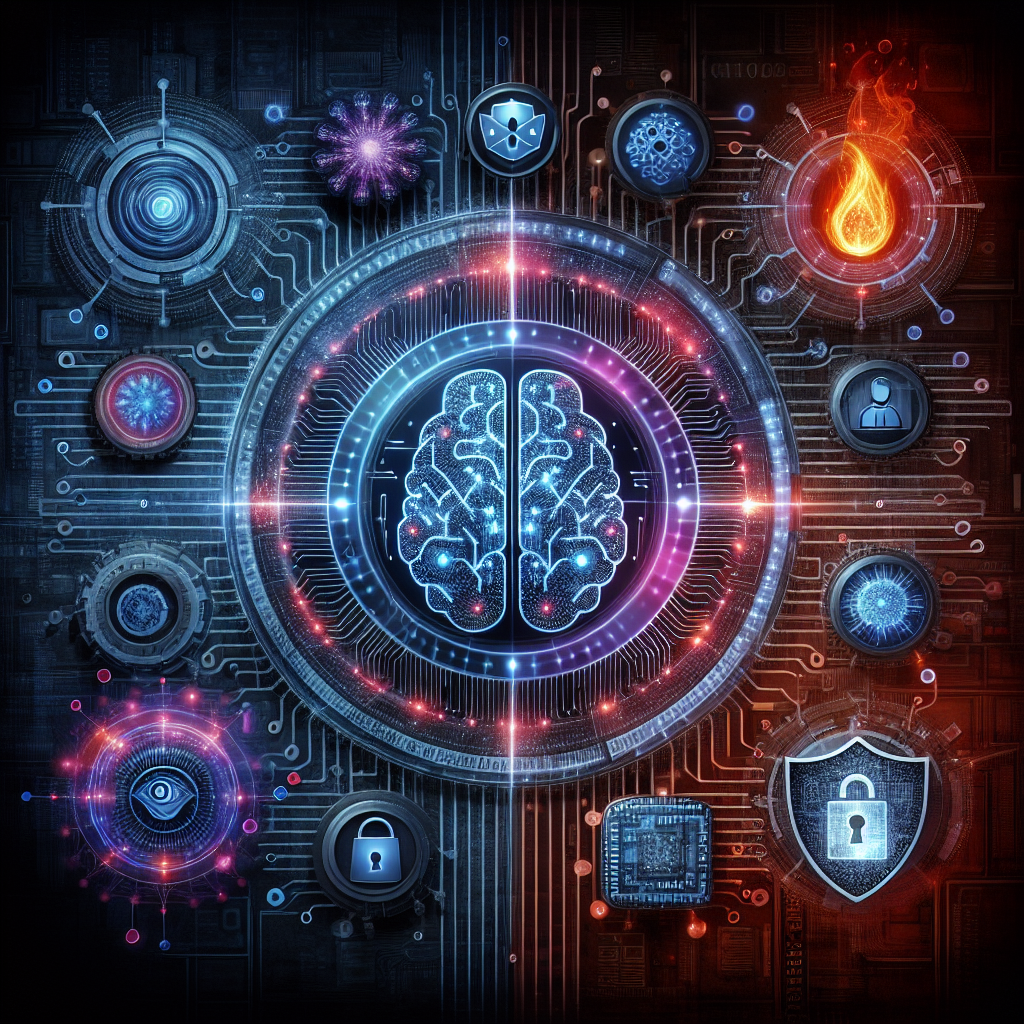AI and Cybersecurity: A Match Made in Tech Heaven
In today’s digital age, the importance of cybersecurity cannot be overstated. With more and more of our personal and sensitive information being stored and transmitted online, the need for robust cybersecurity measures has never been greater. This is where artificial intelligence (AI) comes in. AI has the potential to revolutionize the field of cybersecurity, making it more effective, efficient, and adaptive than ever before.
AI and cybersecurity may seem like an unlikely pair at first glance, but the truth is that they are a match made in tech heaven. AI has the ability to analyze vast amounts of data in real-time, identify patterns and anomalies, and make decisions autonomously. This makes it an invaluable tool for detecting and responding to cyber threats quickly and effectively.
One of the key benefits of using AI in cybersecurity is its ability to automate tasks that would normally require human intervention. This can help organizations streamline their cybersecurity processes, reduce the risk of human error, and free up their security teams to focus on more strategic tasks. AI can also help organizations respond to cyber threats more quickly, as it can analyze and respond to incidents in real-time, without the need for human intervention.
AI can also help organizations predict and prevent cyber threats before they occur. By analyzing historical data and identifying patterns and trends, AI algorithms can help organizations anticipate potential security breaches and take proactive measures to prevent them. This can help organizations stay one step ahead of cyber criminals and protect their sensitive information from being compromised.
Another benefit of using AI in cybersecurity is its ability to adapt and learn over time. AI algorithms can analyze the outcomes of their decisions and learn from their mistakes, improving their accuracy and effectiveness over time. This can help organizations stay ahead of evolving cyber threats and protect their data from new and emerging threats.
Despite all of these benefits, there are also some challenges and limitations to using AI in cybersecurity. One of the main challenges is the potential for AI algorithms to be manipulated or deceived by cyber criminals. Hackers can use adversarial techniques to trick AI algorithms into making incorrect decisions, leading to false positives or false negatives in cybersecurity operations. This highlights the importance of developing robust and secure AI algorithms that are resistant to manipulation and deception.
Another challenge is the potential for bias in AI algorithms. AI algorithms are only as good as the data they are trained on, and if this data is biased or incomplete, it can lead to biased or inaccurate decisions. This can have serious implications for cybersecurity, as biased algorithms may fail to detect certain types of cyber threats or may unfairly target certain individuals or groups. To address this challenge, organizations need to ensure that their AI algorithms are trained on diverse and representative data sets, and that they are regularly audited and tested for bias.
Despite these challenges, the potential benefits of using AI in cybersecurity far outweigh the risks. By leveraging the power of AI, organizations can enhance their cybersecurity capabilities, detect and respond to cyber threats more effectively, and stay ahead of evolving cyber threats. AI and cybersecurity truly are a match made in tech heaven, and organizations that embrace this powerful combination will be better equipped to protect their sensitive information and defend against cyber attacks.
FAQs:
Q: How can AI help organizations improve their cybersecurity posture?
A: AI can help organizations improve their cybersecurity posture by automating tasks, analyzing vast amounts of data in real-time, detecting and responding to cyber threats quickly, predicting and preventing cyber threats before they occur, and adapting and learning over time.
Q: What are some of the challenges of using AI in cybersecurity?
A: Some of the challenges of using AI in cybersecurity include the potential for AI algorithms to be manipulated or deceived by cyber criminals, the potential for bias in AI algorithms, and the need to develop secure and robust AI algorithms that are resistant to manipulation and deception.
Q: How can organizations address the challenges of using AI in cybersecurity?
A: Organizations can address the challenges of using AI in cybersecurity by developing secure and robust AI algorithms, training these algorithms on diverse and representative data sets, regularly auditing and testing these algorithms for bias, and staying informed about the latest developments in AI and cybersecurity.
Q: What are some best practices for organizations looking to implement AI in cybersecurity?
A: Some best practices for organizations looking to implement AI in cybersecurity include developing a clear strategy for integrating AI into their cybersecurity operations, ensuring that their AI algorithms are secure and robust, training their security teams on how to use AI effectively, and staying up to date on the latest trends and developments in AI and cybersecurity.

